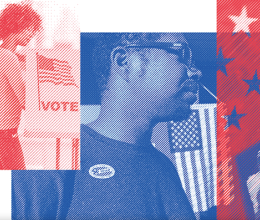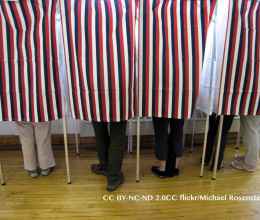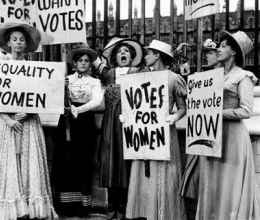
Imagine a system to elect the President of the United States in which the candidate with the most votes could actually lose. You just imagined our system. And it has happened more than once — and as recently as 2000 and 2016, despite the fact that George W. Bush and Donald Trump received fewer votes than their opponents.
Under the National Popular Vote Interstate Compact, the candidate with the most votes in the country would win — not most of the time, but every time. Following the compact, states would give their electoral votes to the candidate for president who receives the most votes in the country. A national popular vote would ensure that each vote cast has an equal impact on the outcome of the presidential election, furthering the principle of one person, one vote.
Additionally, smaller states like Maine are often ignored by presidential candidates because they only need to focus on a few swing states that determine the Electoral College outcome. If all voters had an equal voice in the election, candidates would campaign in more states to win over as many voters as possible. This would ensure candidates are accountable to all voters, not just a small group of swing voters in a few swing states.
Before LD 1578 became law in Maine, 16 states had joined the compact and held a collective 205 electoral votes. Once enough states join that they collectively hold 270 electoral votes (the number needed to win the Electoral College), the candidate with the most votes nationwide would win the election.
Bill Movement:
This bill originated in 2023 during the First Regular Session of the 131st Legislature. It was not passed in 2023 and was carried over into 2024 to be considered during the Second Regular Session of the 131st Legislature.





